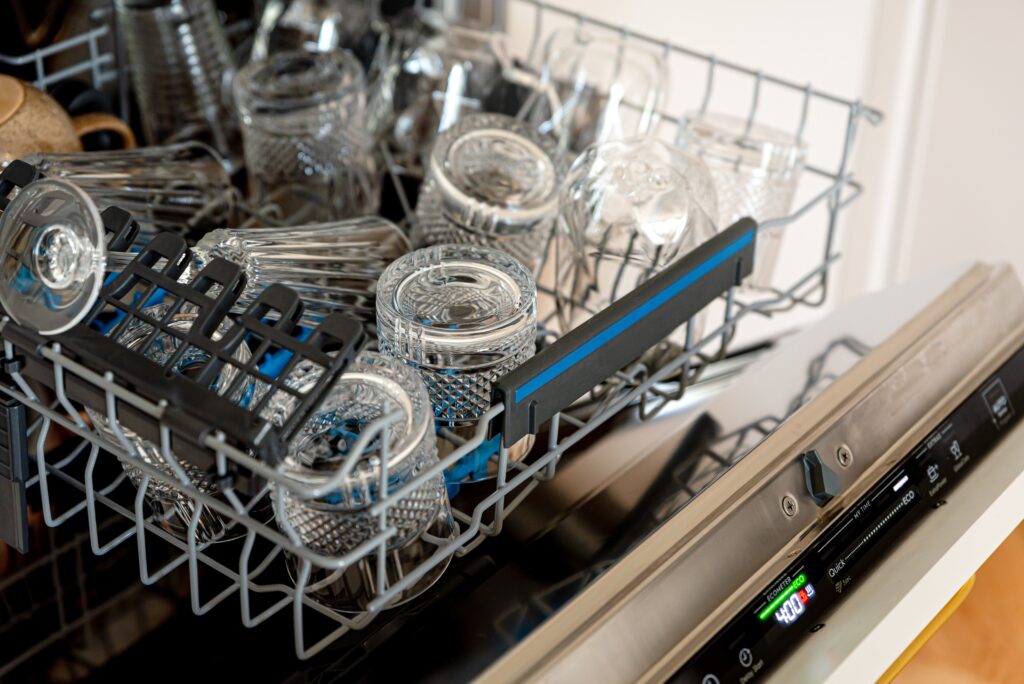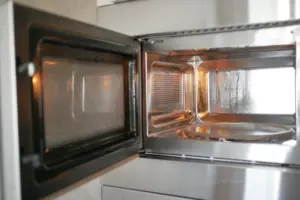A dishwasher not draining that refuses to drain can quickly turn the convenience of modern kitchen appliances into a frustrating ordeal. When confronted with a dishwasher that’s not draining, understanding the underlying causes is crucial for effective troubleshooting and, ultimately, resolving the issue. In this comprehensive exploration, we’ll delve into the multifaceted reasons behind a non-draining dishwasher, guide you through the troubleshooting process, suggest quick fixes, and highlight scenarios that warrant professional intervention.
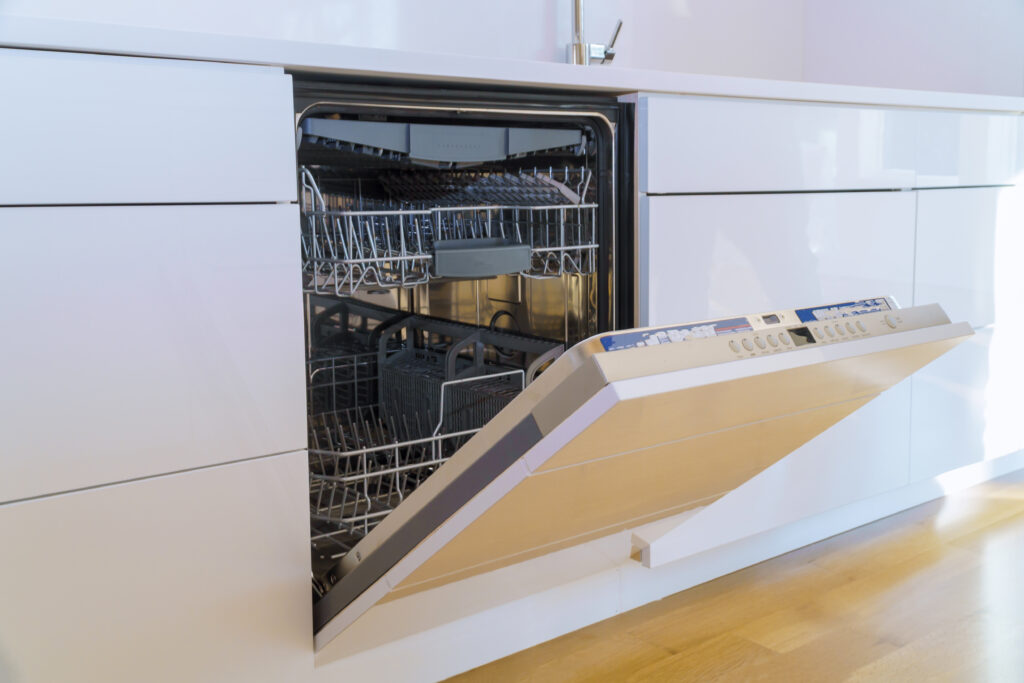
Understanding the Complexity of Dishwasher Drainage Issues
Dishwashers are marvels of modern kitchen technology, equipped with intricate systems designed to clean and efficiently drain water. When the drainage system encounters problems, it can manifest in various ways, such as standing water at the bottom of the dishwasher or incomplete draining cycles. Understanding the potential culprits behind a dishwasher not draining is the first step toward restoring its optimal functionality.
1. Clogged Drain Hose:
A common culprit for dishwasher drainage issues is a clogged drain hose. Over time, debris, food particles, and grease can accumulate in the hose, obstructing the smooth flow of water. This obstruction prevents the dishwasher from effectively draining after a cycle. To address this, inspect the drain hose for any visible blockages, ensuring that it is securely connected and free from kinks or bends.
2. Blocked Air Gap:
The air gap, a vital component in many dishwasher drainage systems, prevents wastewater from flowing back into the dishwasher. When the air gap becomes clogged with debris, it hinders proper drainage. Checking and cleaning the air gap is a straightforward yet often overlooked troubleshooting step.
3. Garbage Disposal Connection:
For dishwashers that share a drainage connection with a garbage disposal unit, a blockage or improper connection can impede drainage. Verify that the knockout plug is removed from the garbage disposal inlet, allowing water to flow freely into the disposal unit. Additionally, inspect the disposal’s drain line for any obstructions.
4. Faulty Drain Pump:
A malfunctioning or worn-out drain pump is a more intricate issue that can hinder proper drainage. The drain pump is responsible for expelling water from the dishwasher, and if it fails, water accumulates at the bottom. Diagnosing a faulty drain pump often involves listening for unusual noises during the drainage cycle or examining the pump for visible signs of damage.
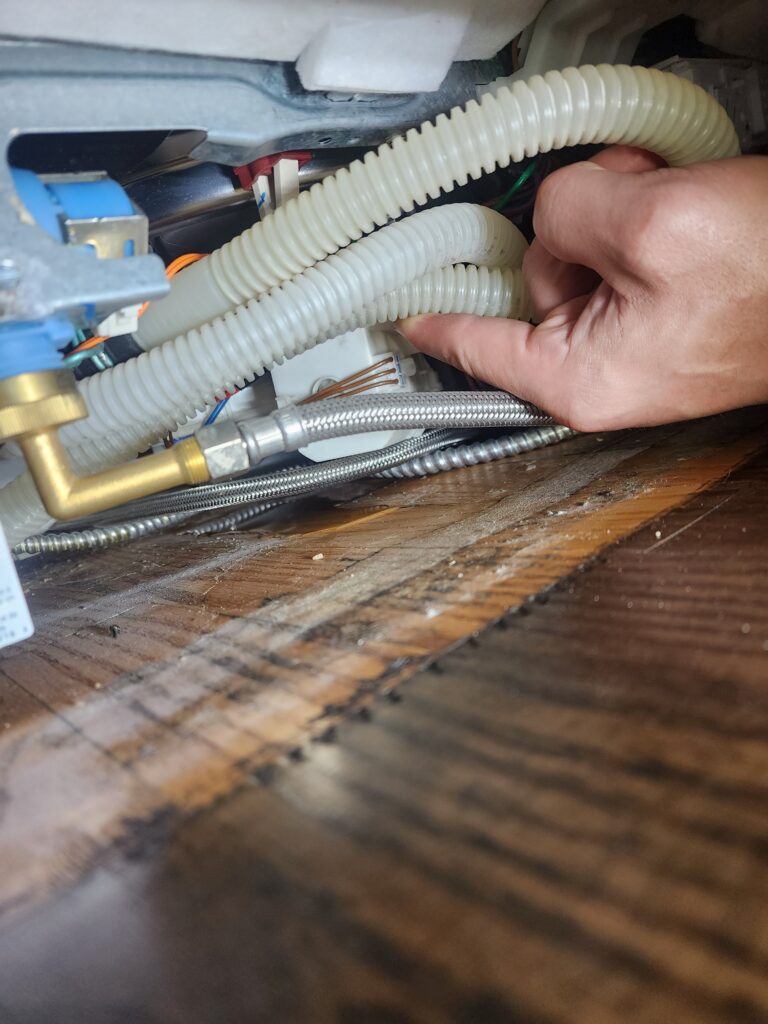
Troubleshooting Your Dishwasher Drainage Woes
When confronted with a dishwasher that’s refusing to drain, a systematic approach to troubleshooting can help pinpoint the issue and guide your efforts toward a resolution.
1. Inspect the Drain Hose:
Begin by inspecting the drain hose for any visible blockages or kinks. Disconnect the hose and flush it with water to dislodge debris. Ensure that the hose is securely reconnected and free from any bends that might impede water flow.
2. Check the Air Gap:
Inspect the air gap, usually located next to the kitchen sink’s faucet, for any signs of blockage. Remove the cap and clean out any debris. Running a small amount of water through the air gap can also help dislodge accumulated particles.
3. Examine the Garbage Disposal Connection:
If your dishwasher is connected to a garbage disposal unit, verify that the knockout plug has been removed from the disposal inlet. Inspect the disposal’s drain line for any clogs, and ensure that the connection between the dishwasher and disposal is secure.
4. Listen for Drain Pump Issues:
During a dishwasher cycle, listen for any unusual noises emanating from the drain pump. Grinding or humming sounds may indicate a malfunction. Additionally, visually inspect the drain pump for any visible damage or signs of wear.
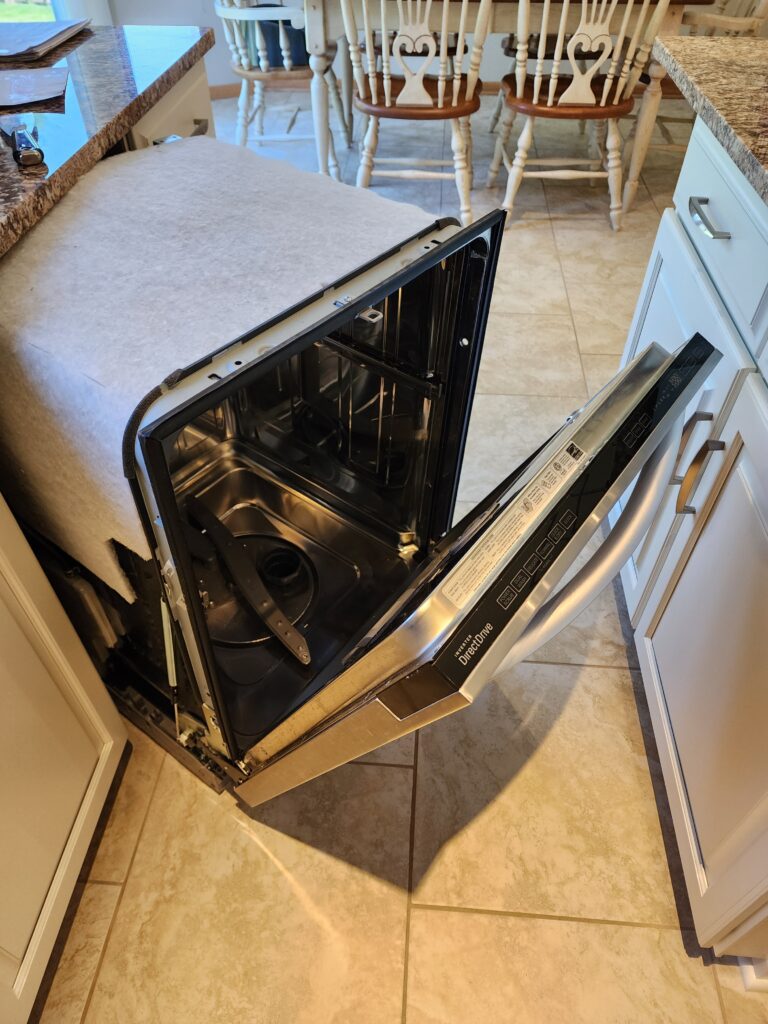
Quick Fixes for Immediate Relief
While troubleshooting identifies the root cause of the drainage issue, there are a few quick fixes that may provide immediate relief and allow your dishwasher to resume normal operation.
1. Clearing Minor Blockages:
In cases where the blockage is minor, manually clear debris from the dishwasher’s drain area. Be cautious and use appropriate tools to avoid damage. Remove any visible debris, such as food particles or small objects, to facilitate drainage.
2. Running Hot Water:
Sometimes, accumulated grease and soap scum can contribute to drainage problems. Run hot water through the dishwasher before starting a cycle to help dissolve and flush away these substances. This quick fix is particularly effective in preventing future drainage issues.
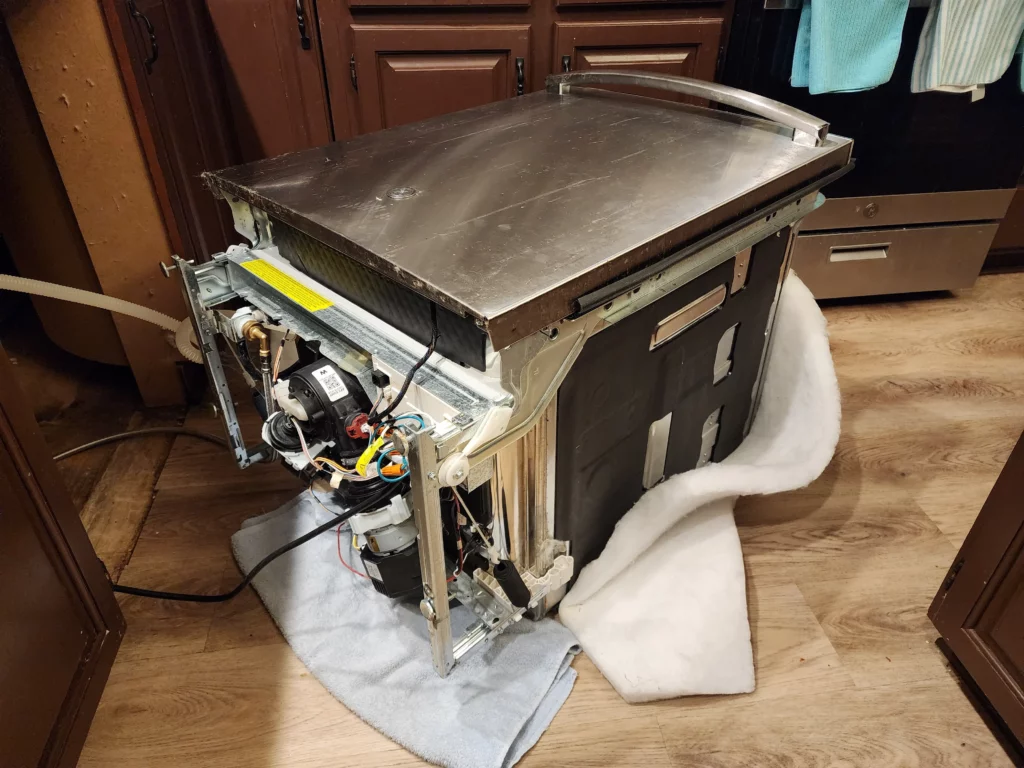
Knowing When to Seek Professional Assistance
While troubleshooting and quick fixes address common drainage issues, certain scenarios necessitate professional intervention. Consider seeking professional assistance under the following circumstances:
1. Persistent Drainage Problems:
If the dishwasher continues to exhibit drainage issues despite your troubleshooting efforts and quick fixes, a professional technician can conduct a thorough assessment. Persistent problems may indicate underlying mechanical or electrical issues that require expertise to diagnose and resolve.
2. Faulty Drain Pump:
If the drain pump is suspected to be faulty or damaged, it’s advisable to enlist the services of a professional technician. Replacing or repairing a drain pump is a task that requires specialized knowledge and expertise to ensure proper functionality and prevent further damage.
3. Complex Electrical or Mechanical Issues:
Dishwasher drainage problems can sometimes be symptomatic of complex electrical or mechanical issues beyond the scope of basic troubleshooting. Professional technicians possess the knowledge and tools to diagnose and address these intricacies effectively.
Concluding
In conclusion, a dishwasher not draining is a challenge that demands a systematic approach to identify and resolve the underlying causes. Through thoughtful troubleshooting, quick fixes, and the awareness of when to seek professional assistance, you can navigate the process of restoring your dishwasher’s optimal functionality.

